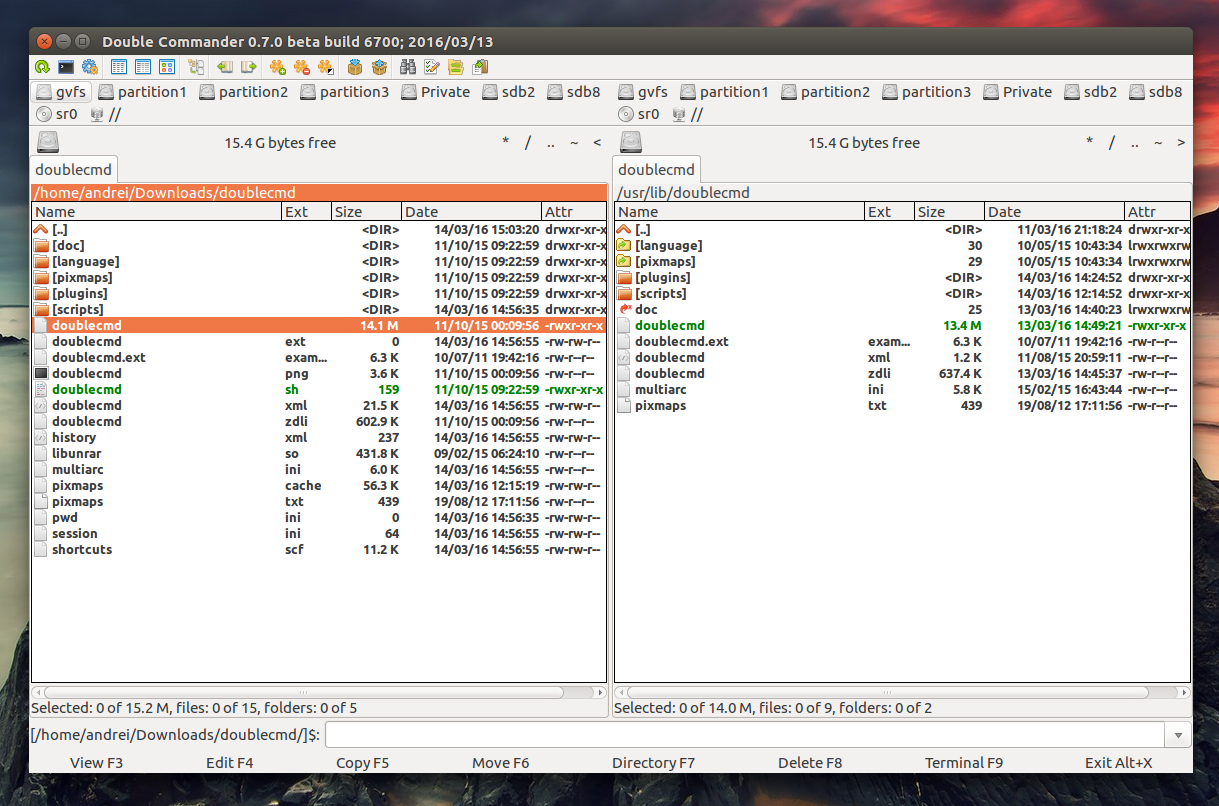
Moving on, just next to the “Compare by Contents” option is the “Multi Rename Tool.” As the name suggests, this option lets you rename multiple files in one go. Here’s a screenshot of the compare tool in action. Of course, you need to select a couple of files before launching this tool. Given that we’re using Ubuntu 14.04, the following set of commands downloaded and installed the file manager on our system: For example, in our case (Ubuntu) we clicked the link corresponding to GTK2 in the GNU/Linux section and then selected Ubuntu. You can proceed by clicking links corresponding to your OS.
#Double commander run in terminal install#
The download and install instructions for Double Commander are there on its official website. Note: we’ve used Double Commander version 0.7.2 beta for this article. The application is still in beta phase, presumably because all the features envisioned for it haven’t been implemented yet – it’s currently under heavy development. It is inspired by Total Commander but contains some new features. Double Commanderĭouble Commander is an open-source, dual-panel file manager that’s available for various operating systems including Linux.


Directly to the point, you’ll be glad to know that such tools exist, and one of them is Double Commander which we’ll be discussing in this article. What if you could access most of these features from within a single software? Or better yet, think of a file manager that packs a majority of these tools so that you don’t have to open separate applications for your day-to-day tasks.


 0 kommentar(er)
0 kommentar(er)
